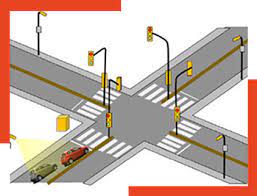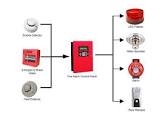Smart cities are urban areas that utilize technology and data to enhance the quality of life for residents, improve sustainability, and optimize resources. Several cities around the world have embraced the concept of smart cities and have made significant strides in implementing innovative solutions to address various urban challenges. Here are some of the best smart cities in the world:
Tokyo, Japan
Tokyo is known for its advanced infrastructure, efficient public transportation system, and cutting-edge technology integration. The city uses data analytics to improve traffic flow, reduce energy consumption, and enhance public safety.
Singapore
Singapore has been at the forefront of smart city initiatives with its focus on sustainability and digital innovation. The city-state leverages technology for efficient waste management, smart mobility solutions, and urban planning.
Barcelona, Spain
Barcelona is a pioneer in smart city development with projects like smart street lighting, waste management systems, and digital platforms for citizen engagement. The city’s commitment to sustainability and innovation has made it a model for other urban centers.
Copenhagen, Denmark
Copenhagen is renowned for its emphasis on sustainability, green spaces, and cycling infrastructure. The city uses data-driven solutions to improve air quality, reduce carbon emissions, and promote renewable energy sources.
Dubai, UAE
Dubai is known for its futuristic architecture and ambitious smart city projects. The city employs artificial intelligence (AI) for traffic management, security surveillance, and government services to enhance efficiency and convenience for residents.
These are just a few examples of the best smart cities in the world that are leading the way in leveraging technology to create more livable, sustainable urban environments. As more cities embrace the concept of smart cities, we can expect to see further innovations that will transform how we live and interact with our surroundings.
9 Essential Tips for Building Sustainable and Efficient Smart Cities Worldwide
- Focus on sustainable development to reduce environmental impact.
- Implement efficient public transportation systems to reduce traffic congestion.
- Promote the use of renewable energy sources for a cleaner environment.
- Utilize smart technology for better waste management and recycling programs.
- Invest in advanced healthcare facilities and telemedicine services.
- Ensure widespread access to high-speed internet for all residents and businesses.
- Create green spaces and parks to improve quality of life for citizens.
- Encourage citizen engagement through digital platforms for feedback and participation in decision-making processes.
- Prioritize data security and privacy measures in all smart city initiatives.
Focus on sustainable development to reduce environmental impact.
To be among the best smart cities in the world, it is crucial to prioritize sustainable development initiatives aimed at reducing environmental impact. By implementing eco-friendly practices such as energy-efficient infrastructure, waste management systems, and green spaces, smart cities can significantly decrease their carbon footprint and enhance overall environmental quality. Embracing sustainable development not only benefits the environment but also promotes healthier living conditions for residents, fosters economic growth through resource optimization, and sets a positive example for other urban areas striving to become more environmentally conscious and resilient.
Implement efficient public transportation systems to reduce traffic congestion.
Implementing efficient public transportation systems is a crucial strategy in addressing traffic congestion in smart cities. By providing reliable and convenient public transportation options, cities can encourage residents to use mass transit instead of relying on private vehicles. This not only helps reduce traffic congestion but also lowers carbon emissions, improves air quality, and enhances overall mobility within the city. Smart cities that prioritize efficient public transportation systems demonstrate a commitment to sustainability and urban planning that benefits both residents and the environment.
Promote the use of renewable energy sources for a cleaner environment.
Promoting the use of renewable energy sources in smart cities is crucial for creating a cleaner and more sustainable environment. By harnessing solar, wind, and other renewable resources, cities can reduce their carbon footprint, decrease reliance on fossil fuels, and mitigate the impact of climate change. Implementing renewable energy initiatives not only helps to combat environmental degradation but also contributes to improved air quality and public health. Smart cities that prioritize the adoption of clean energy solutions pave the way for a greener future and set an example for other urban areas to follow suit in transitioning towards a more eco-friendly and resilient infrastructure.
Utilize smart technology for better waste management and recycling programs.
One key tip for creating the best smart cities in the world is to utilize smart technology for better waste management and recycling programs. By implementing innovative solutions such as sensor-based waste bins, smart waste collection routes, and data analytics for optimizing recycling processes, cities can significantly improve their environmental sustainability efforts. These technologies not only help in reducing waste generation but also enhance the efficiency of waste collection and recycling operations, leading to a cleaner and greener urban environment for residents to enjoy.
Invest in advanced healthcare facilities and telemedicine services.
Investing in advanced healthcare facilities and telemedicine services is a crucial aspect of building a smart city. By incorporating cutting-edge medical technologies and remote healthcare solutions, cities can improve access to quality healthcare for residents, enhance patient outcomes, and streamline healthcare delivery. Telemedicine services enable patients to consult with healthcare providers remotely, reducing the need for physical visits to hospitals or clinics. This not only increases convenience for patients but also helps in managing healthcare resources more efficiently. By prioritizing advanced healthcare facilities and telemedicine services, smart cities can ensure better health outcomes for their populations while promoting innovation in the healthcare sector.
Ensure widespread access to high-speed internet for all residents and businesses.
Ensuring widespread access to high-speed internet for all residents and businesses is a crucial aspect of building a successful smart city. High-speed internet connectivity not only enhances communication and connectivity but also serves as the backbone for various smart city initiatives such as IoT devices, digital services, and data analytics. By providing seamless access to high-speed internet, cities can empower their residents with the tools and resources needed to fully participate in the digital economy, access online education and healthcare services, and engage with smart city applications. This infrastructure is essential for driving innovation, economic growth, and overall quality of life in a modern urban environment.
Create green spaces and parks to improve quality of life for citizens.
Creating green spaces and parks in smart cities is a crucial strategy to enhance the quality of life for citizens. These areas provide much-needed respite from the hustle and bustle of urban life, offering opportunities for relaxation, recreation, and social interaction. Green spaces also contribute to improved air quality, biodiversity conservation, and mental well-being. By incorporating parks and green areas into urban planning, smart cities can promote a healthier lifestyle, mitigate the effects of climate change, and foster a sense of community among residents. Prioritizing the development of green spaces is not only beneficial for the environment but also plays a significant role in ensuring a sustainable and livable future for city dwellers.
Encourage citizen engagement through digital platforms for feedback and participation in decision-making processes.
Encouraging citizen engagement through digital platforms for feedback and participation in decision-making processes is a key aspect of building successful smart cities. By providing avenues for residents to voice their opinions, concerns, and ideas, cities can ensure that urban development projects are aligned with the needs and preferences of the community. Digital platforms enable real-time communication, transparency, and inclusivity in decision-making, fostering a sense of ownership and empowerment among citizens. This approach not only enhances the effectiveness of smart city initiatives but also strengthens the social fabric and democratic values within the urban environment.
Prioritize data security and privacy measures in all smart city initiatives.
In the realm of smart city initiatives, it is crucial to prioritize data security and privacy measures to safeguard the sensitive information collected and utilized. Ensuring robust data protection protocols not only builds trust among residents but also mitigates the risks associated with potential cyber threats and breaches. By implementing stringent security measures, smart cities can uphold the privacy rights of individuals while harnessing the power of data-driven technologies to enhance urban living experiences and drive sustainable development.




